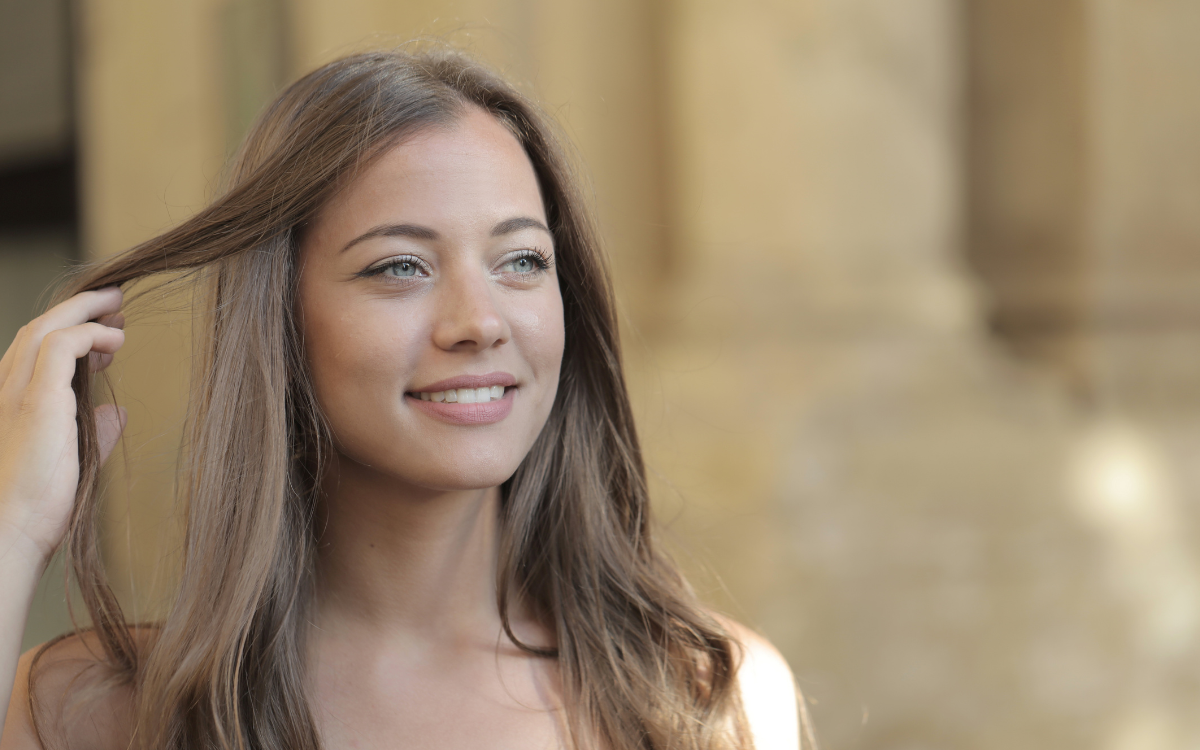Your hair contains the protein keratin naturally. It maintains the health of your hair. Although keratin makes your hair strong, it also makes it vulnerable to harm from outside aggressors. To make up for what has been compromised, keratin has been added to a number of hair care formulas. After undergoing a chemical reaction, the big protein molecule keratin is broken down so that it may enter the hair cuticle. It comes from an even bigger keratin molecule. Hydrogen and hydroxide are used to breakdown the link in keratin, which causes it to break down (water). Due to its lower molecular weight, the keratin is broken down into tiny pieces at the conclusion of the chemical procedure, allowing the hair to absorb them. In essence, hydrolyze denotes a non-specific protein fragmentation or breaking into smaller pieces. The proteins that have been broken down leave a deposit on the hair shaft. The keratin proteins enter the hair shaft and reach beyond the cuticle because of their low molecular weight and tiny size, which also helps to minimize damage.
What Is the Origin of Keratin?
Similar to biotin, keratin is naturally created by the body. A water-soluble vitamin called biotin aids in the metabolism of protein, which serves as the building block for keratin. Additionally, keratin may be found in dietary sources. Lean protein, whole grains, vitamin C, and biotin are keratin-rich foods that enhance the keratin in your hair and nails. Keratin is also present in topical items including shampoo, conditioner, lotions, and nail polish.
What Effect Does Keratin Have On Your Hair?
When you apply keratin topically to your hair, it helps close up tiny gaps in the medulla, cortex, and cuticle layers of the hair shaft. Putting cement into a crack is like doing so. Hair has the strength to limit damage from chemical treatments, heat styling, mechanical manipulation, and the sun when the broken-down protein fills these small gaps. The most practical choice is to purchase protein treatments and keratin off the shelf. Usually, these ingredients are included into the composition when you purchase such items off the market. They may thus be applied straight to your hair. It is a simple procedure.
All you need to do to prevent over-processing your hair is strictly adhere to the label’s written recommendations. It’s vital to carefully read the instructions since certain treatments may call for a hooded dryer or a processing cap. You may have an organic keratin treatment even though conventional keratin treatments are still commonly accessible. They don’t contain formaldehyde and are non-toxic. They often employ things like olive oil and amino acids. They can strengthen, repair, and return your hair to a healthy condition and are just as good in preventing breakage.
In keratin treatments, formaldehyde, a pungent, colorless gas, breaks apart the cuticle and quickens the keratin’s binding to the hair. According to studies, formaldehyde consumption is dangerous and may cause coughing, breathing issues, other respiratory issues, nosebleeds, itchy eyes, and sore throats. You shouldn’t use keratin as often as you would a deep moisturizing conditioner. The majority of hair can typically withstand protein treatments every six weeks. Some individuals may get by with four or five weeks. Some hair types need a three-month delay. Everything is dependent on how healthy your hair is. Did you realize that eating too much protein might be detrimental? It will produce the exact opposite outcome of what you want. Your hair may feel brittle from eating too much protein, and if you strain it too much, it may shatter. Consider your hair as dry spaghetti before it is boiled to further understand this—it is hard. It softens after boiling. Similar to this, hydration is required to counteract a protein overdose.
In order to make keratin, which is itself made of keratin, quills, feathers, horns, and ground-up animal hooves are used. Keratin cannot be produced synthetically and cannot be obtained from plants. Keratin is thus neither vegan nor cruelty-free. However, vegan-derived keratins are already readily accessible. Keratin provides a number of advantages. It aids in revitalizing and restoring damaged hair. It is advisable to speak with your hairdresser about various treatments and choose the one that suits your hair the best.

Leave a Reply